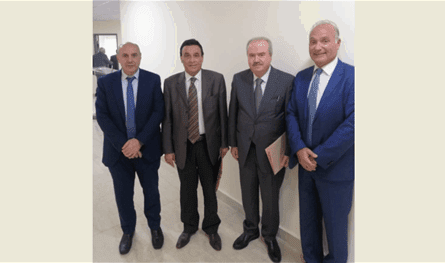Governments disrupt the implementation of laws: No applied decrees

Sabine Owais wrote in “Al -Nahar”: The government, under the weight of external pressure, is urgently completing the maximum of reformist classified measures, in an effort to secure obtaining international financial support as a basic condition for restoring the country’s political, economic and financial recovery.
But is the approval of the laws sufficient to enter into force? What about the applied decrees that are often delayed or not issued at all, in a way that overthrew these laws and disrupts their implementation.
In any case, the application of laws becomes hostage to the conditions of political quotas or special gains, and the reproduction in selecting any laws that are completed their applied decrees.
Representative George Aqis responds to the clarifications of “Al -Nahar” in this regard by saying that there is a chronic government practice not to implement the laws, specifically not to issue organizational and executive decrees, so President Berri established with his powers a committee that is supposed to be limited tasks and powers headed by Minister Yassin Jaber when he was still a deputy in Parliament. We counted the laws that are not fully or partially implemented and reached 75 until 2022, including the laws of anti -smoking, traffic, and the organized bodies … and communication was existing with the ministers to urge them to put the decrees, and we set a work program for this purpose with specialized societies and used experts. But by the exit of MP Yassin from the council and the failure to appoint President Berri as Chairman of the Committee to stop its work, despite the urgent need to continue to keep pace with and monitoring the laws that are not implemented, because this falls at the heart of the council’s powers with parliamentary oversight, otherwise the government disrupts the legislative work of the council by disrupting the implementation of laws.
Aqis notes that the legislation wheel is mainly slow, and with the government’s failure to enforce applied decisions, it slows the most legislative or reform work, and the absence of a parliamentary committee doubles slow as there is no parliamentary control on the one hand, and there is no penalty for government backwardness. The deed gives the example of the regulatory bodies established in the law for two decades, and they have been established only, with what this arranged for the sectors concerned.
Aqis pointed out that the council, in order to protect the legislative action, adopted the formula “determining the minutes of the law” and sometimes determining the minutes of implementing a specific article in order not to disrupt the implementation of all the law, although this is not very sound, because the laws must come in general formulas so that the government should put the minutes of implementation. Therefore, we are working to detail the laws to avoid the need for applied decrees. These two legislative exercises to avoid the caveats of disrupting the implementation of laws if he does not insist on issuing their applied decrees.
The post Governments disrupt the implementation of laws: No applied decrees appeared first on 961 tobay Lebanon today.
















